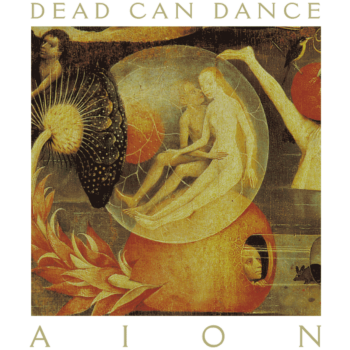Aion

Bands that changed my life part 7 (in no particular order): Dead Can Dance. In 1991 we took out a giant Michelin map of Africa (south of the equator), and pointed to some destinations on it that we knew absolutely nothing about. The rules were few – the place should look incredibly interesting to visit, but you shouldn’t necessarily have to die trying to get there. We got to those destinations: the first time to Bujumbura, Burundi through Namibia and Zambia - around 11,000 km overland (return). The second time to Lamu in northern Kenya through Zim, Zambia, Malawi and Tanzania - around 10,000 km overland (return).
We saw Lake Bangweulu, where a portion of Livingstone’s remains still lie, and where local women ran the gauntlet of crocodiles each day to catch kapenta. ‘Women in water like gunmetal oil, their fishing poles raised in slapstick symmetry against the sky,’ my diary reads. We saw the desert sun hissing into the Atlantic at Luderitz, the ocean turning silver gold, black, cerise, red and violet, with cormorants in V-form like black ghosts letting their wingtips just contrail the water as they swept home. We saw the fires burning on the banks of Lake Malawi as we swept north on a steamer at night, in rough water, pitching and yawing into blackness, rolling into the unknown, with Dead Can Dance chanting medieval hymns into my earphones. I stood totally alone in Burundi one twilight, upon the cusp of the mountains that separate the great watersheds of the Nile and Congo, alone in the unimaginable vastness of Africa.
One morning, at the Beach of Life guest house on Bangweulu, we took an oath to leave the city once and for all. And we stayed good to that oath - this year almost half my life has been spent living in the small coastal town I love.
And music accompanied us, of course: we banged out to AC/DC in Luderitz, chilled daily to Rumba in Samfya, lost the plot mightily to ‘Born to Suffer’ by Lucky Dube at Nchelenge, learned the lyrics to ‘For my Lover’ by Tracy Chapman at Tiwi Beach, sang to Marley in Monkey Bay and imbibed strange and wondrous herbage to Yellowman in Lamu.
Those trips were rare and astonishing gifts, experienced once and never duplicable. Karen Blixen: “If I know a song of Africa, of the giraffe and the African new moon lying on her back, of the plows in the fields and the sweaty faces of the coffee pickers, does Africa know a song of me? Will the air over the plain quiver with a colour that I have had on, or the children invent a game in which my name is, or the full moon throw a shadow over the gravel of the drive that was like me, or will the eagles of the Ngong Hills look out for me?”
Acknowledgement and thanks to:: Dead Can Dance
Oct. 9, 2022